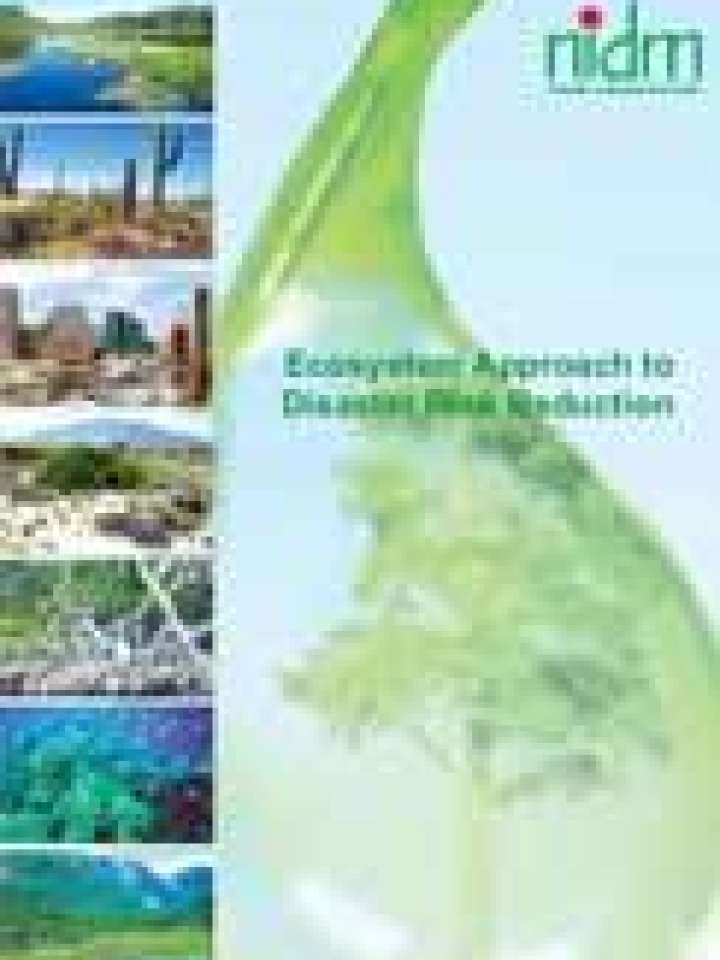Ecosystem approach to disaster risk reduction
This book is intended to provide an overview of the concept of ecosystem approach to disaster risk reduction (Eco-DRR), natural resource management and disaster linkages, incorporating Eco-DRR concepts in various phases of disaster management, including post disaster recovery in wide range of human and natural environmental settings. The case studies cover coastal, mountain and urban ecosystems and specific hydro-meteorological risks like floods, forest fire, epidemics and landslides.
- Chapter 1 is an excerpt from the PEDRR background paper to the 2011 UNISDR Global assessment report on disaster risk reduction. It highlights the importance of sustainable ecosystems management as an effective approach for achieving both disaster risk reduction and climate change adaptation priorities.
- Chapter 2 focuses on the natural resource management for disaster management and the importance of natural resources (ecosystem services) in human well being.
- Chapter 3 is based on the documentation of community practices helping them to cope with the floods in eastern Uttar Pradesh, conducted by Gorakhpur Environmental Action Group and local NGOs.
- Chapter 4 highlights the importance of environmental management for coastal hazard mitigation.
- Chapter 5 shows that the Hindu Kush-Himalayan (HKH) region is affected by increasing frequency of flash flood and river-line flood.
- Chapter 6 emphasizes on landslides patterns recognizing it an environmental challenge, and their mitigation & management measures using the ecological techniques.
- Chapter 7 addresses the impact of urbanization on ecosystems on the case study of a rapidly urbanizing city, Bangaluru in India facing growing menace of flooding.
- Chapter 8 deals with the problems of fire and pests in forest ecosystems and implications of biomass burning on climate-change.
- Chapter 9 reveals the importance of managing water environment and aquatic ecosystems since it is one of the key provisional ecosystem service.
- Chapter 10 emphasizes on the ecological aspects of disaster risk reduction and post-disaster recovery planning.
- Chapter 11 discusses the potential of Environmental Impact Assessment in (EIA) and other policy instruments in facilitating disaster risk reduction and in improving the ecosystem services.
- Chapter 12 gives a description of ecological approach to post disaster recovery planning with the objective of mitigating future risks.
Explore further
